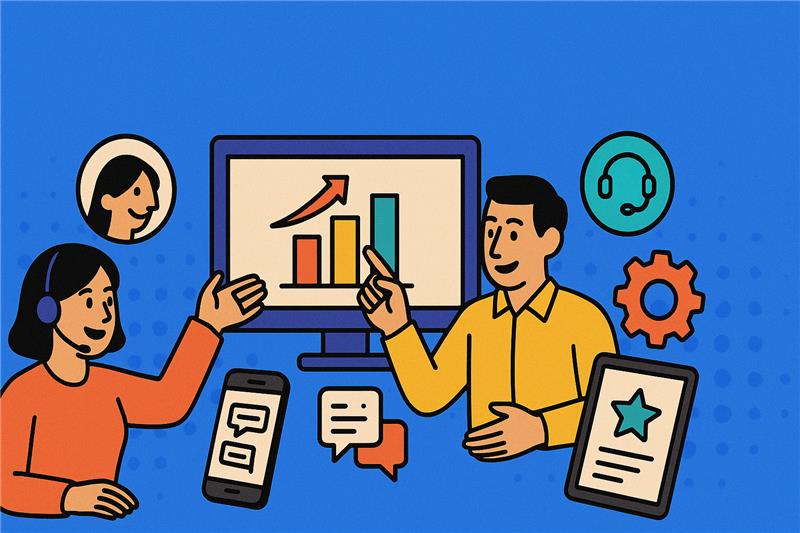July 21, 2025

You ever buy something after seeing an ad, and then never use it?
It just sits there. Unopened. Unused. And then it hits you:
“Wait… why did I even buy this?”
You weren’t tricked. You were moved. Some ads are so emotionally sharp, so precisely crafted, that they bypass logic and go straight to impulse. They work not because of discounts or features, but because they trigger something deeper.
And that’s exactly where most CX strategies fall short.
We spend time optimising journeys, reducing friction, improving CSAT. But we often forget the one thing that drives real loyalty, advocacy, even love:
👉 The result? Experiences that customers don’t just use, they remember, return to, and talk about.
The best ads know how to do that.
And the best customer experiences? They’re designed the same way, intentionally, cleverly, and strategically.
This helps people understand complex products or ideas by comparing them to something familiar, often through storytelling or visual metaphors.
Instead of a boring feature walkthrough, think of how Canva uses playful icons and metaphors to “teach by showing.” A credit card brand might visualise savings as growing trees or jars, not dry bar graphs. This helps simplify, humanise, and stick.
By exaggerating the best or worst-case scenario, you can drive action through urgency, fear, humour, or empathy.
Headspace calls meditation “brain care”, skip it and it’s like skipping a shower. Duolingo’s owl begs you to return, using guilt and humour to trigger behaviour. Use this in CX via nudges, warnings, or rewards that show what users gain or miss, with every click.
This taps into our natural desire to improve, win, or compare, using rankings, milestones, or visible progress.
Strava and Peloton thrive on leaderboards. In CX, show customers where they rank in loyalty tiers, how close they are to their next reward, or how they stack up: “You’re in the top 20% of savers this month!” A little competition = a lot more engagement.
Rather than giving a one-size-fits-all experience, invite users to customise and build their own journey.
Notion starts with a blank page, you build what you need. Great CX borrows this by offering build-your-own bundles, interactive flows, or smart onboarding like “Tell us what matters to you.” The more users shape it, the more they care.
Surprise your users by shifting their perception, through time, reframing, or emotional storytelling.
Spotify Wrapped doesn’t just show stats, it tells your story. In CX, recreate this magic with lookbacks, time capsules, or milestone surprises like a thank-you note on your 1-year anniversary. Small time shifts. Big emotional hits.
By leaving small gaps for users to fill in emotionally or functionally, you increase their investment in the experience.
Think Nike By You, where customers co-design their own shoes. In digital CX, this could be naming a savings goal, setting their homepage, or writing a personal mission statement. The more they contribute, the more it feels truly theirs.
These six tools aren’t just creative tactics.
They’re based on a pattern found in over 200 of the most successful global ads.
A group of researchers discovered that high-performing campaigns weren’t random acts of genius, they followed six repeatable idea templates. Clear. Structured. Powerful.
At Twimbit, we translated those templates into tools that any CX leader can apply, not to write better ads, but to design better customer experiences.
And here’s where it gets interesting…
Advertisers have been using these for decades, often unconsciously.
Let’s look at how they show up in ads:
They’re unforgettable, not because they’re loud, but because they’re crafted. So why should CX be any different?
The next time you map a journey, plan an email, or write an onboarding message, don’t just make it seamless.
Make it memorable.
Make it designed.
Ready to bring this into your CX?
At Twimbit, we help brands move from serviceable to standout.
These six tools are already helping organisations craft journeys that stick, through emotion, surprise, and storytelling.
👉 Let’s co-create an experience your customers won’t forget